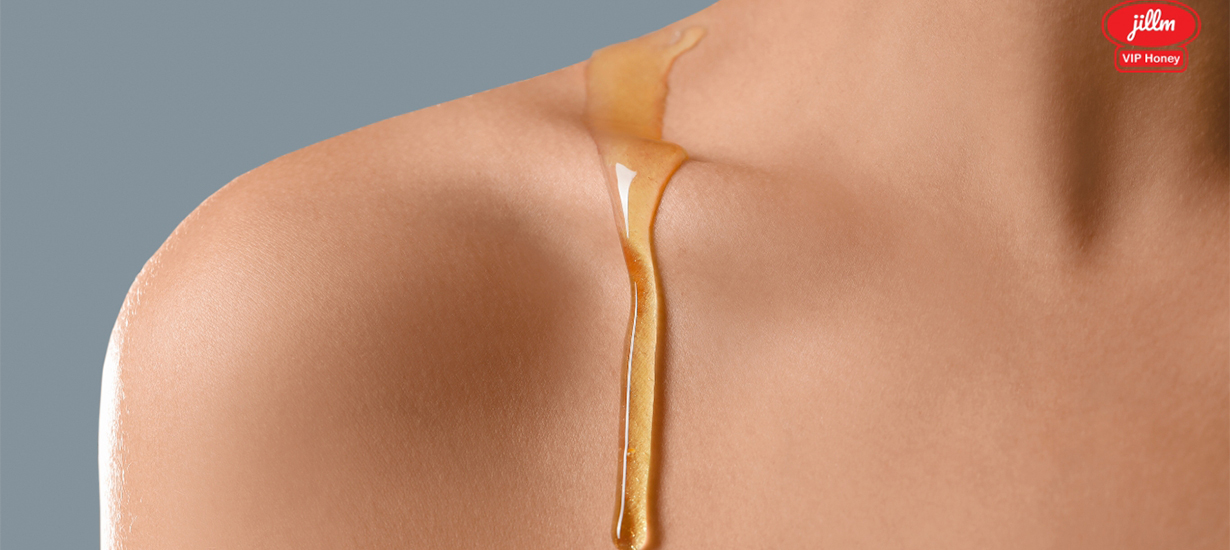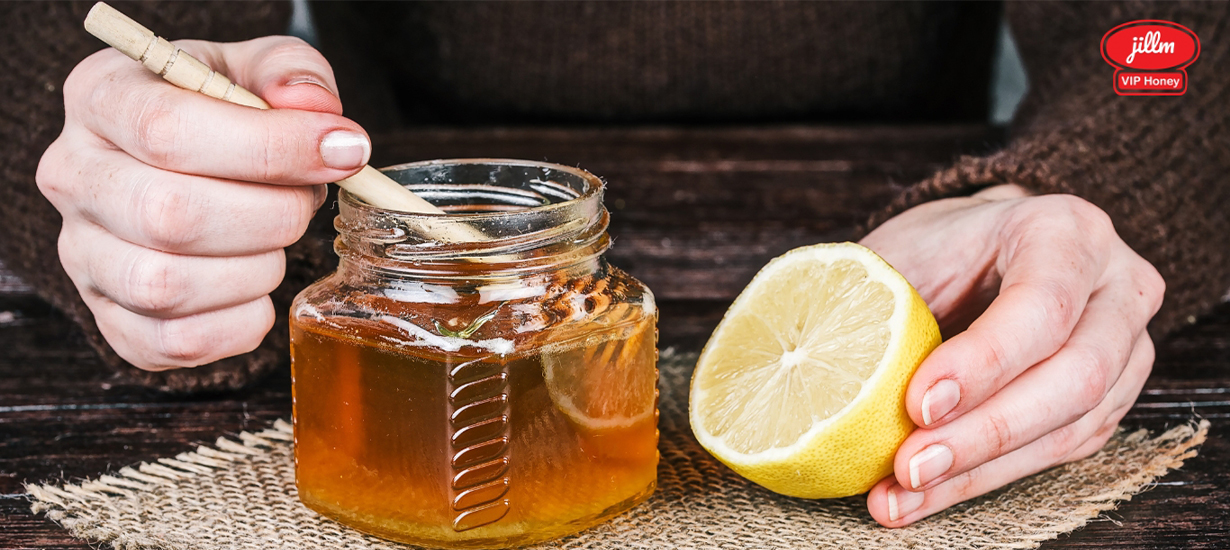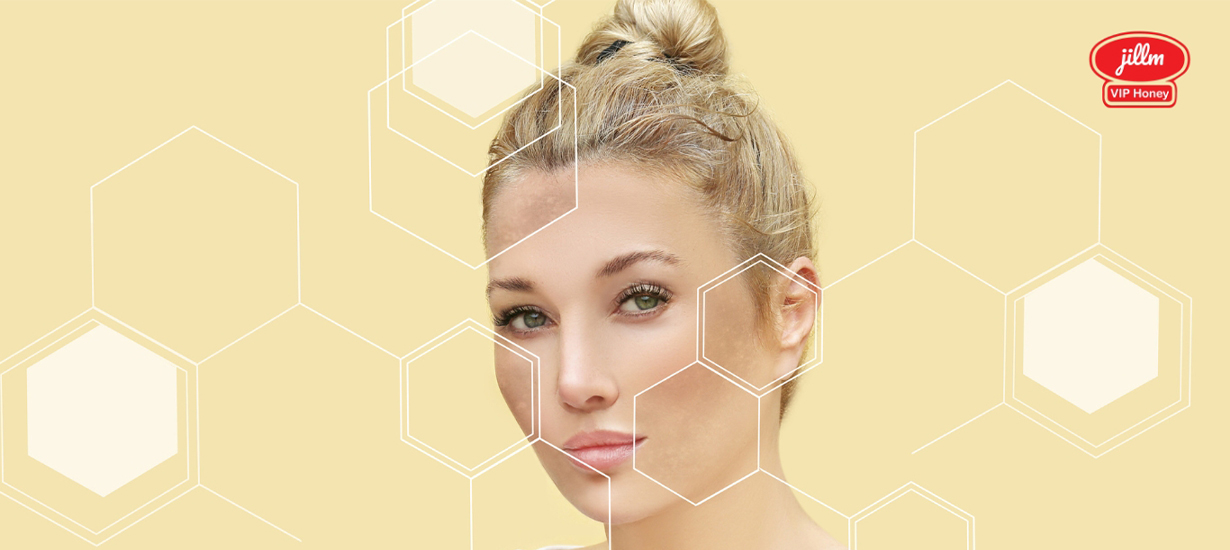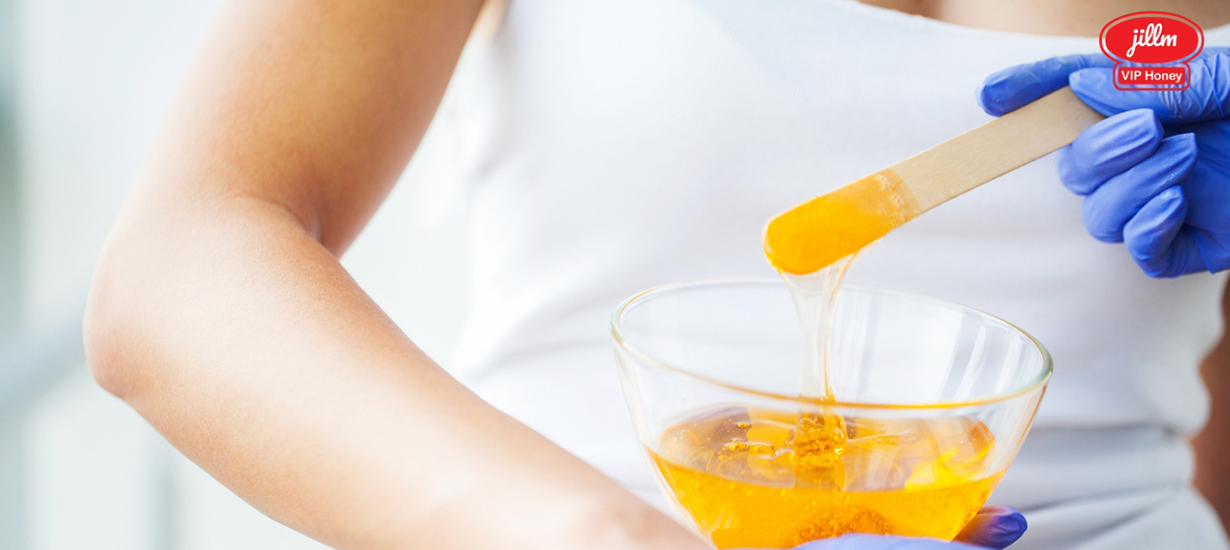Honey is an effective natural antibiotic because of its reactive oxygen species that eliminate bacteria and aid in the fight against infection. The sticky nature of honey can make it challenging to dose honey despite its effectiveness.
You can apply honey directly to wounds or burns and cover them with a clean dressing to use as an antibiotic. You can also take a spoonful of honey orally every day. Hydrogen peroxide and honey's high sugar content help honey fight bacteria effectively. It is always best to consult a doctor before using honey for medical purposes.
In this blog post, we'll talk about honey's antibiotic applications in health, including its benefits for heart health, soothing coughs, and wound care.
How To Use Honey As Antibiotic: 9 Health Benefits

It has been confirmed through research that honey is highly antibacterial, anti-inflammatory, and antioxidant, making it a versatile natural remedy. Here are some ways honey can be used as an antibiotic to treat and manage health conditions.
Wound Care
A wound or cut not treated properly can contribute to infection and slow the healing process. Honey is a natural and effective solution.
Steps on Using Honey for Wound Dressing
At home, you can use honey to treat wounds. Follow these steps:
- Clean the Wound: Remove dirt and debris from the wound gently with soap and water.
- Apply Honey: Use a clean spoon or spatula to spread a thin layer of honey directly onto the wound.
- Cover with a Bandage: Place a sterile bandage over the honey-covered wound to keep it clean.
- Change Regularly: Replace the honey and bandage every 24 hours or if the dressing becomes wet or dirty.
- Monitor Healing: Watch the wound for signs of infection, such as redness or increased pain. If these occur, seek medical attention.
Honey's Effectiveness in Treating Cuts and Wounds
A unique property of honey makes it an excellent wound care solution:
- Antibacterial Properties: Honey contains natural compounds that kill bacteria and prevent infection.
- Moisture Retention: It keeps the wound moist, which promotes faster healing.
- Reduces Inflammation: Honey helps soothe the skin and reduce swelling.
- Scar Prevention: By promoting healthy tissue regeneration, honey can minimize scarring.
Burn Protection
When burns are not treated properly, they can cause pain, discomfort, and even complications. Honey offers a natural way to help manage and heal burns.
Precautions and Application Methods for Burn Treatment
The use of honey on burns requires careful consideration. You can ensure effective treatment by following these steps:
- Clean the Burn Area: Spray cool water on the burn area to remove debris.
- Apply Honey: Use a clean utensil and spread a thin layer over the burn.
- Cover with a Sterile Bandage: If you need to protect the area, cover it with a sterile bandage.
- Change Dressing Daily: Apply honey and bandages daily or whenever they become damp or dirty.
- Monitor the Burn: Look for signs of infection, like increased redness or pain. Seek medical advice if needed.
Cardiovascular Disease

Health experts consider heart disease to be one of the major health concerns in the world. The natural remedy of honey can be helpful for heart health.
Steps To Using Honey for Cardiovascular Disease
It is simple to add honey to your diet, and you can do it in a number of tasty ways. Heart health can be improved by adding honey to your meals:
- Morning Boost: Start your day with hot water mixed with honey and a slice of lemon. This can help kick-start your metabolism.
- Sweeten Your Tea: Add honey instead of sugar for a healthier alternative.
- Drizzle on Breakfast: Add honey to cereal, oatmeal, or yogurt for a nutritious and sweet breakfast.
- Salad Dressing: Combine honey with olive oil and balsamic vinegar for a heart-healthy dressing.
- Cooking Ingredient: Use honey as a natural alternative instead of sugar or artificial sweeteners in baking or cooking.
Heart Health Benefits of Honey
Antioxidants and anti-inflammatory compounds in honey could promote a healthy heart. Here are some key benefits:
- Reduces Bad Cholesterol: Honey may reduce LDL levels, preventing plaque buildup in arteries.
- Boosts Good Cholesterol: It can also increase HDL (good cholesterol), promoting better heart function.
- Improves Blood Flow: The antioxidants in honey help improve circulation by reducing oxidative stress.
- Lowers Blood Pressure: Regular consumption of honey might help manage blood pressure levels.
Cough Relief
The sound of coughing can be disturbing and uncomfortable. A sore throat and coughing symptoms can be relieved naturally with honey.
6 Steps to Making Honey-Based Cough Syrup
Homemade honey cough syrup is easy to make with only a few ingredients. You can make your own natural remedy by following these steps:
- Gather Ingredients: You will need:
- 1 cup of honey
- 1/4 cup of fresh lemon juice
- 1/4 cup of water
- Optional: A pinch of ginger or cinnamon for extra soothing effects
- Mix the Ingredients: Combine the honey, lemon juice, and water in a small saucepan. Stir well to combine the ingredients evenly.
- Heat the Mixture: Heat the saucepan over low heat. Stir the mixture continuously while it warms up. Do not let it boil, as this can change the beneficial properties of honey.
- Add Optional Spices: Add ginger or cinnamon to taste. Stir until the spices are well mixed into the syrup.
- Cool and Store: Place the saucepan off of heat and let it cool. Once cooled, pour it into a clean jar or bottle for storage.
- Dosage: Take 1 to 2 teaspoons of the syrup as needed to relieve cough symptoms. Store it in the refrigerator and use it within a month for the best results.
How Honey Soothes the Throat and Reduces Coughing
A lot of people use honey to relieve coughs because of its soothing properties. Here's why it works:
- Coats the Throat: Honey creates a protective layer in the throat, reducing irritation.
- Natural Demulcent: Its thick consistency helps calm the throat, minimizing cough reflexes.
- Antimicrobial Properties: Honey's natural compounds can fight bacteria and viruses, potentially reducing cough duration.
- Boosts Immunity: The antioxidants and nutrients in honey support overall immune health, helping the body recover faster.
Gastrointestinal Disease

The role honey plays in promoting digestion health has been recognized for centuries. The enzymes and beneficial compounds in honey can help ease digestion and improve gut health.
- Natural Probiotic: Honey contains prebiotics that help feed healthy bacteria in the gut, supporting digestion.
- Soothing Agent: Its natural anti-inflammatory properties can calm the digestive tract, relieving discomfort.
Using Honey for Gastrointestinal Disorders
The use of honey for treating gastrointestinal disorders can be gentle and effective. It's effective for treating conditions like acid reflux, gastritis, and stomach ulcers.
- Acid Reflux Relief: Consuming a teaspoon of honey can coat the esophagus, reducing acid reflux symptoms.
- Gastritis Comfort: Mix honey with warm water and drink it to soothe the stomach lining.
- Ulcer Soothing: Regularly taking honey may help reduce ulcer size and pain due to its antibacterial effects.
Tips for Using Honey
It is easy to include honey in your daily routine to support digestive health:
- Morning Ritual: Start the day with warm water mixed with honey and lemon.
- Yogurt Add-In: Add a spoonful of honey to yogurt for a sweet and healthy snack.
- Herbal Tea Sweetener: Use honey as a natural sweetener in herbal teas to enhance flavor and benefits.
Neurological Disease
It's not just a sweet treat that keeps your brain healthy, but honey might also help. Honey might help protect our brains and boost our mental health, according to scientists. Find out what you need to know.
Neuroprotective Benefits of Honey
Honey could be a natural shield for your brain. Here’s why it’s being studied:
- Antioxidant Power: Honey is full of antioxidants that fight harmful substances in your body, which might help protect brain cells.
- Anti-Inflammatory Properties: Reducing inflammation is crucial for brain health, and honey's natural compounds may help do just that.
- Memory Boost: Some research suggests that honey might improve memory and learning by supporting brain functions.
Adding Honey in Your Diet for Brain Health
Adding honey to your diet is easy and delicious. You can benefit from it in several ways:
- Morning Energy: Stir a spoonful of honey into your morning tea or yogurt for a brain-boosting start to the day.
- Snack Smarter: Drizzle honey over fruit or whole-grain toast as a healthy snack.
- Smoothie Sweetener: Blend honey into smoothies for a natural sweetener with added benefits.
- Salad Dressing: Mix honey with olive oil and lemon juice for a delicious dressing.
Acne and Eczema Relief

Acne and eczema can be challenging to manage. The natural properties of honey can help reduce symptoms and promote healing.
DIY Honey Masks and Treatments for Skin Conditions
Add honey into your skincare routine is simple and can be done with ingredients at home:
- Honey and Oatmeal Mask: Mix honey with oatmeal to create a soothing mask. Apply to the face for 15-20 minutes and rinse with warm water to calm inflamed skin.
- Honey and Lemon Spot Treatment: Combine honey with lemon juice and apply it to acne spots. Leave for 10 minutes before washing off to help reduce bacteria and brighten the skin.
- Honey and Aloe Vera Gel: Blend honey with aloe vera gel to make a calming balm for eczema. Apply to affected areas to reduce irritation and moisturize.
- Simple Honey Wash: Use raw honey as a gentle face wash. Apply a thin layer to damp skin and rinse after a few minutes to cleanse and hydrate.
Honey Reduces Skin Inflammation and Bacteria
Honey possesses unique qualities that make it effective for skin care:
- Antibacterial Properties: Honey can kill bacteria, which helps in preventing acne outbreaks.
- Anti-inflammatory Effects: It soothes irritated skin, reducing redness and swelling associated with eczema.
- Moisturizing Action: Honey retains moisture, keeping the skin hydrated and supple.
- Healing Promotion: It aids in healing damaged skin tissues, which can help improve skin texture.
Easing Stomach Problems
Digestive discomfort can disrupt daily life, but honey can help you find relief.
Simple Honey-Based Solutions for Digestive Comfort
You can add honey into your diet can be an easy and natural way to help your stomach feel better:
- Honey and Ginger Tea: Mix a teaspoon of honey with grated ginger in hot water. Drink this tea to calm nausea and indigestion.
- Honey Lemon Water: Combine honey with lemon juice in warm water for a refreshing drink to help cleanse the digestive system.
- Honey Yogurt Parfait: Add honey to yogurt with fruits and nuts for a delicious snack that supports gut health.
- Honey and Apple Cider Vinegar Tonic: Mix honey with apple cider vinegar in water to help balance stomach acidity and improve digestion.
How Honey Can Alleviate Symptoms of Stomach Upset
Honey has several properties that make it effective in calming stomach issues:
- Antimicrobial Action: Honey can help fight harmful bacteria in the stomach, which may reduce infections.
- Anti-inflammatory Effects: It can soothe the stomach lining, reducing irritation and discomfort.
- Natural Prebiotic: Honey promotes the growth of good bacteria in the gut, which aids digestion.
Clearing Up Fungal and Sinus Infections

Fungal and sinus infections can be bothersome, but honey offers a natural solution to help manage these conditions.
Antifungal Properties of Honey for Infections
Honey has unique characteristics that make it effective against fungal infections:
- Antimicrobial Action: Honey can combat fungi and bacteria, helping to clear infections.
- Moisturizing Effect: It keeps affected areas hydrated, aiding healing.
- Natural Healing Agents: Honey contains enzymes and antioxidants that support recovery.
Instructions for Using Honey in Sinus Relief
Using honey for sinus relief can be simple and effective. Here are some methods to try:
- Honey and Water Rinse: Mix a tablespoon of honey in warm water and use it as a nasal rinse to help clear sinuses.
- Honey Inhalation: Add a few drops of honey to hot water and inhale the steam. This can soothe inflamed sinuses.
- Honey and Ginger Tea: Combine honey with ginger in hot water and drink it to reduce sinus congestion and discomfort.
- Direct Application: Rub honey on the affected area and cover with a bandage for external fungal infections.
Safety and Side Effects of Using Honey as an Antibiotic

Honey has been used for centuries, but you should know its safety and possible side effects like any remedy. Below, we will explore common side effects, rare but serious reactions, and guidelines for safe use.
Common Side Effects
While honey is generally safe for most people, some may experience mild side effects. Being aware of these can help you use honey safely.
- Potential for Wheezing and Other Asthmatic Symptoms: Some people may experience breathing difficulties such as wheezing. This is more common in those with asthma or respiratory issues.
- Discussing Dizziness, Nausea, and Vomiting: Occasionally, honey can cause dizziness, nausea, or vomiting. These symptoms are usually mild but should be monitored.
Rare but Serious Reactions
Though uncommon, some reactions to honey can be serious. Knowing these can prepare you to seek help if needed.
- Weakness, Excessive Perspiration, Fainting: In rare cases, honey might cause weakness or even fainting. If you experience these, it's important to rest and seek medical advice.
- Irregular Heart Rhythms (Arrhythmias): Some people notice an irregular heartbeat. This can be a serious condition and should be addressed by a healthcare professional.
- Stinging After Topical Application: Honey can sometimes cause skin stinging after application. This might indicate sensitivity or an allergic reaction.
Safety Guidelines for Usage
To enjoy the benefits of honey while minimizing risks, follow these guidelines for safe usage.
- Recommended Dosages and Application Methods: Use honey in moderation. A small amount applied to the skin or taken orally is usually sufficient. Always start with a small dose to test your reaction.
- Precautions for People with Allergies or Pre-existing Conditions: If you have allergies, especially to pollen or bee products, or any pre-existing health conditions, consult a healthcare provider before using honey as an antibiotic. This can help prevent adverse reactions.
Conclusion
The antibiotic properties of honey reveal that this sweet nectar provides more than a tasty addition to our diets. The versatility of honey is reflected in its ability to promote gut health, soothe coughs, and even heal wounds.
It's important to approach honey's medicinal use cautiously, as with any treatment. It's best to talk to your doctor before adding honey into your health regimen, especially if you have pre-existing conditions.
If you want to reap the benefits of honey, try incorporating it into your daily practices, whether as a spoonful in your tea or a natural face mask. With honey, nature provides a simple yet powerful way to enhance well-being.
FAQs
Heat honey to 120 degrees for 10 minutes to sterilize it at home, but this may reduce its benefits. Honey needs to be sterilized before consumption to get rid of Clostridium botulinum spores.
When applied to a wound, honey acts like a dry sponge and absorbs extra water. This process is called osmosis. It draws fluid away from the infected area by osmosis. Bacteria cannot grow without liquid, so this kills them.







